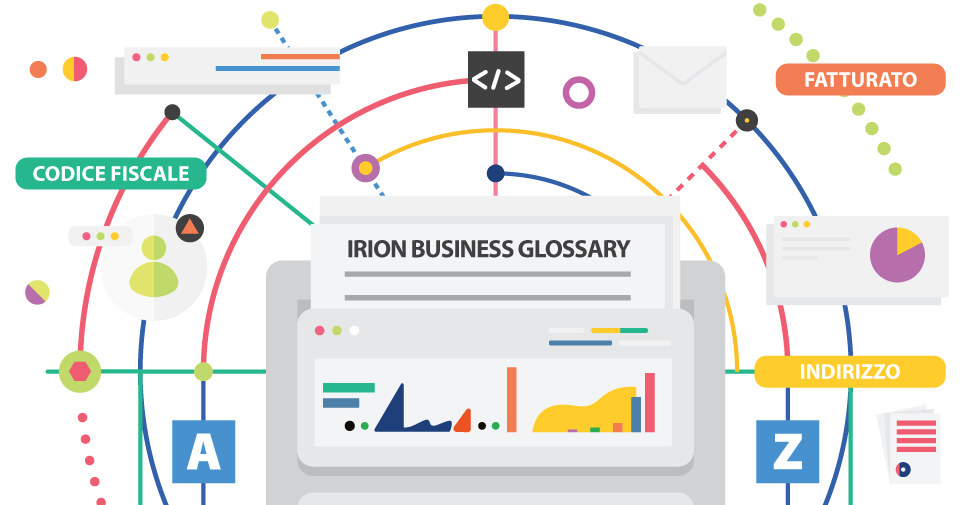A Business Glossary is an approved and regulated glossary containing business terms.
It is an essential component of an Enterprise Data Management system and one of the main elements of a metadata repository that registers and catalogs entities in a structured model. These include not only the entities themselves, such as business terms/business data elements, organizational units, processes, rules, but also the corresponding attributes (e.g., definition) and mutual relations.
Let us take a step back.
Communicating is one of the oldest human needs. Since prehistoric times, humans have developed forms of communications that with time have further evolved in line with the cultural, social and technological developments.
Language as a form of human communication and expression has become more refined. It continues to develop and change in order to represent objects, concepts, phenomena, events more precisely and in a way everyone can understand. This has led to the creation of dictionaries that contain the words’ “precise” definitions and sets of rules that establish the ways to combine words to represent even more complex concepts.
Ambrogio Calepino published the first dictionary of the modern age in 1502. The model he adopted was replicated in other works of the kind. Today, dictionaries certainly have the same aims as their “ancestors”. However, they differ in structure and are used in ways that could not even be imagined back in that era.
Similarly, Business Glossary is a tool for creating a common language that everybody within a company can understand.
Modern technologies allow:
- collecting
- storing
- processing
- analyzing the ever-increasing amounts of data more and more efficiently.
The data is understood, interpreted, analyzed, and communicated based on the common “language”. Therefore, Business Glossary is the tool that forms a “bridge” between the world of business and the world of IT. Consider as an example the word “product” in a manufacturing company. It can take on different meanings, depending on the organizational unit: for Sales & Marketing, it is something to sell, for Finance, a center of profit, and the result of a production process for Manufacturing.
Therefore, just like in a spoken or written language, it is necessary to distinguish different concepts and rid of possible ambiguities leading to the risk of different interpretations of figures. A clear understanding of the meaning of data (i.e., its semantics) and the relations that interconnect it (i.e., its ontology) releases the data value.
Let us take a step forward.
So, where to begin with structuring a Business Glossary? What are the main aims to pursue? Why is it necessary to connect it to the Data Dictionary? And what are the most common errors to avoid in its implementation?
Want to learn more?
We will provide you with illustrative examples of how other companies
have already started their transformation.
Resources
Download the white paper!
For the answers to these and other questions, download the white paper by Mauro Tuvo and Egle Romagnolli: Business Glossary: a “must” or a “nice to have”?
Among the subjects considered: What is a Business Glossary? What are its aims? How to create a Business Glossary and how to improve it?
The Irion solution
Read about the solution and listen to the testimonials. Discover the Irion offer for Business Glossary implementation and management for your business!






